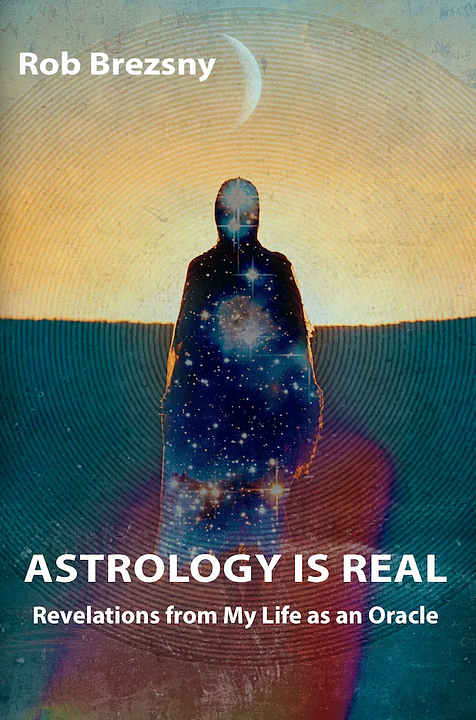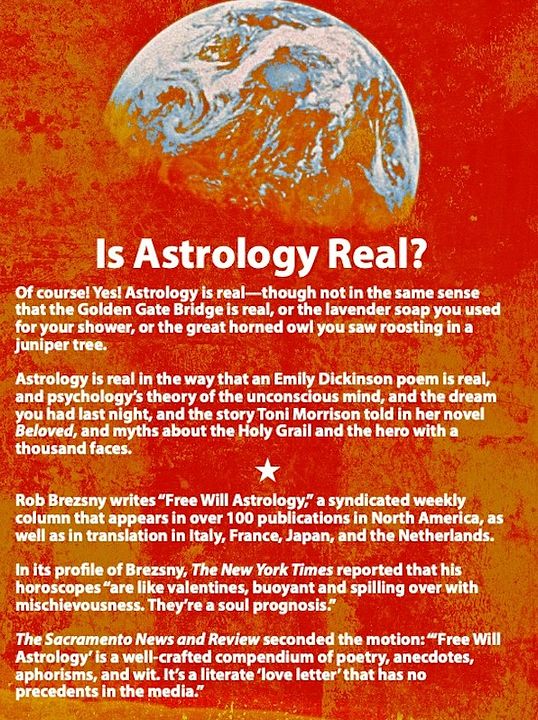Astrology Is a Mythopetic Language
Should I engage in conversations with people who long ago decided that astrology is nonsense? It’s not a good use of my time. Their minds are as irrevocably and self-satisfyingly closed as an evangelical Christian Republican who already knows forever there's no such thing as human-caused climate change.
But if an open-minded person agrees to consider my rational discourse, I begin with the thoughts below.
The majority of those who deride astrology with kneejerk derision don't know that four of history's greatest astronomers were practicing astrologers: Johannes Kepler, Galileo Galilei, Tycho Brahe, and Pierre Gassendi.
Most of the deriders haven't read smart astrological philosophers like Dane Rudhyar, Alice O. Howell, Clare Martin, Steven Arroyo, Richard Tarnas, Antero Alli, Keiron Le Grice, and Liz Greene. They aren't aware that pioneering psychologist Carl Jung cast horoscopes for all his patients and believed that "astrology represents the summation of all the psychological knowledge of antiquity."
The deriders don't know about astronomer Martha Maiden. She was a program executive at NASA for years and achieved such prominence that she now has an award named after her (https://tinyurl.com/MarthaMaiden). Martha is also an excellent astrologer. I know because she and I were friends who attended Duke University at the same time. We lived next door to each other in Durham and carried on an astrology study group with two other friends.
The closest approach that fraudulent "skeptics" often make to studying the ancient art of astrology is to glance at a tabloid or internet horoscope column. To match their carelessness, I might make a drive-by of a strip mall and declare that the profession of architecture is shallow and debased.
That's one reason why the ill-informed "skeptics" spread ignorant lies about the subject. For example, every few years, there's an uproar in the press when an astronomer falsely declares that there is a 13th astrological sign, not just 12, and that therefore all our personal horoscopes are different from what we think they are.
Those astronomers haven't bothered to do the most basic research about how astrology works. Their "rationality" is profoundly irrational. I've compiled more information about this subject here: https://tinyurl.com/IgnoreTheHoax.
Here's another gross misunderstanding by “skeptics” who have eschewed basic research. They say that all astrologers think the stars and planets emit invisible beams of energy that shape people's lives. The truth is, some Western astrologers believe that, but many don’t.
Science popularizer Carl Sagan provided an egregious example of this ignorance. In his TV series Cosmos, he portentously dismissed the straw-man notion that planets might impact a newborn baby.
He said, “How could the rising of Mars at the moment of my birth affect me, then or now? I was born in a closed room. Light from Mars couldn’t get in. The only influence of Mars which could affect me was its gravity. The gravitational pull of the obstetrician was much larger than the gravitational influence of Mars. Mars is a lot more massive, but the obstetrician was much closer.”
I’m still aghast that a scientist of Sagan’s caliber could have been so poorly informed.
Every single one of the many astrologers I respect agrees with what expert astrologer Richard Tarnas says in his book Cosmos and Psyche: The planets don't emit invisible forces that shape our destinies as if we were puppets. Rather, they are symbols of the unfolding evolutionary pattern. Just as clocks tell time but don't create it, the heavenly bodies show us the big picture but don't cause it.
I don’t want to provide space for every spurious argument made by unscientific scientists. But here’s one more howler. Several self-described rational skeptics have assured me that astrology is nonsense because it believes "our behavior depends on the positions of the stars."
I laugh out loud when I hear such comically ignorant drivel. The fact is that Western astrology has nothing to do with any stars except our own: the sun. It's all about planets.
The "rational skeptics" make another fundamental error. The truth is that smart astrologers are not determinists, not dogmatists, not superstitious manipulators. They don't believe that our behavior is dependent on or controlled by heavenly bodies.
. . . continued below

Many scientists deride astrology as being a "pseudoscience." In making such a fallacious claim, they reveal they have shunned the most basic principle of science, which is to actually investigate the subject they aspire to understand.
If these incompetents took the trouble to do research, they would have discovered that Western astrology's best practitioners don't claim that astrology is a science—which means that it can't be a pseudoscience!
The lyrical and practical truth is that astrology is a blend of psychology, storytelling, and mythology. As Carl Jung said, it's an aid in understanding and articulating how the psyche works. Like any language, it's both logical and messy; it's useful in making sense of the world, yet full of crazy-making ambiguities.
Astrology is a symbol system that, when used with integrity, engenders soulful approaches for deepening our connection to life's great mysteries—not predictions of literal events. It liberates and fertilizes our imaginations and encourages us to think less literally. It teaches us to visualize our destinies as mythic quests and deepens our connection to life's gorgeous mysteries.
Psychologist James Hillman spoke of the joyous work of learning our soul's code—the blueprint of our destiny. That's what astrology does best. To imagine that this can be done in a scientific way is irrelevant and delusional.
ASTROLOGY IS NOT A SCIENCE! Nor is storytelling, depth psychology, mythology, dream interpretation, or poetry.
It makes as much sense to criticize astrology for not being scientific as it does to deride Joseph Campbell treatises on the world's mythic traditions or Ursula K. Le Guin's science fiction novels because they don't explicate and illustrate the quantum field theory of physics.
The scientific method is a wonderful method for achieving some understanding of the world. But we can't use it to analyze the Indigenous Bororo people's myth, "The Bird-Nester's Aria." It's not a reliable strategy for uncovering deep truths about how a Beethoven symphony might alter the way we think about a problem we're having at work.
We profoundly need the scientific method and logical deduction and objective perceptions. They are crucial to being human. But we also need mythopoetic storytelling and art that moves us emotionally in mysterious ways and playful fun that frees us from our fixations.
Does it make sense to say that analyzing and working on dreams is "pseudoscience"? Of course not. You can't design a repeatable experiment to test your hypothesis about those slippery marvels. And yet, working with one's dreams, analyzing them to find subconscious patterns that affect our behavior, can be intensely practical.
Astrology is not designed to compete with scientists' logical analyses of why things are the way they are. Rather, it's meant to open our minds to the mythic elements that underlie the surface-level interpretations of what we're all about.
I can't imagine any intelligent person who would believe that the scientific way of knowing is better and more important than the mythopoetic—or vice versa.

Prayer for Us
Pronoia therapy
Prayer Warriors Standing By
Listen to Rob's Expanded Audio horoscopes, updated weekly.
Pronoia therapy
Prayer Warriors Standing By
Listen to Rob's Expanded Audio horoscopes, updated weekly.

